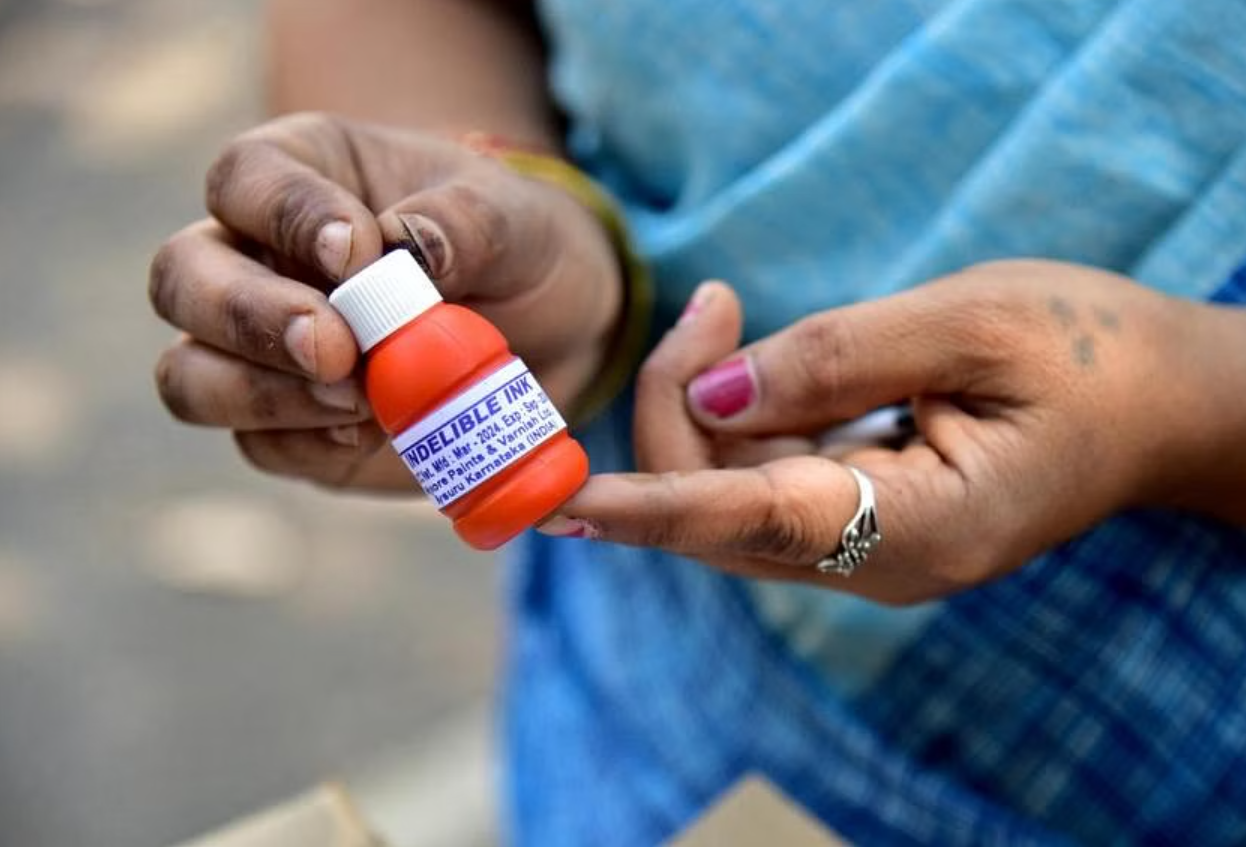Purple fingers and indelible ink are the hallmarks of India's elections


MYSURU, India — In India, the world's most populous democracy, elections mean millions of voters boasting a forefinger daubed in purple, and a factory in the southern city of Mysuru is the source of all of the nation's indelible ink.
For decades, India has used the ink, made primarily from silver nitrate, to mark voters after they have cast their ballot to prevent duplicate votes and fraud. When exposed to sunlight, the ink stains the skin and fingernails purple, lasts for about two weeks and is almost impossible to erase.
Founded in 1937, Mysore Paints And Varnish Limited is the only company authorised to produce the ink in India, which is preparing to hold general elections this year. Prime Minister Narendra Modi is widely expected to win another term in power.

Since the start of the year, the company has shipped a record 2.7 million ink vials to mark the 970 million people registered to vote.
"We've not had a single rejection this year," said Vishalakshi K, the company's quality control manager.
The most populous state of Uttar Pradesh placed the biggest order, while the tiny island territory of Lakshadweep put in the smallest order for just 110 vials, company executives said.
The election commission has set the price per vial at 174 rupees (S$2.81), giving the company, whose main business is making paints used on public transport vehicles, an income in excess of US$7 million (S$9.4 million) from the vote.

Mysore Paints also has orders for indelible ink from several countries in Asia that plan to use it in their elections.
Despite the difficulty in removing the ink, voters have been known to use makeup-removing micellar water, lemon juice and raw papaya sap on the purple stain, often with little success.
To make sure these fraudsters' plans are foiled, Mohammed Irfan, the company's managing director, said election officials must wipe voters' fingers clean before applying the ink.
"This will ensure the ink stays on and no one can wipe it off," he said.
ALSO READ: India moves to implement citizenship law opposed by Muslims ahead of election